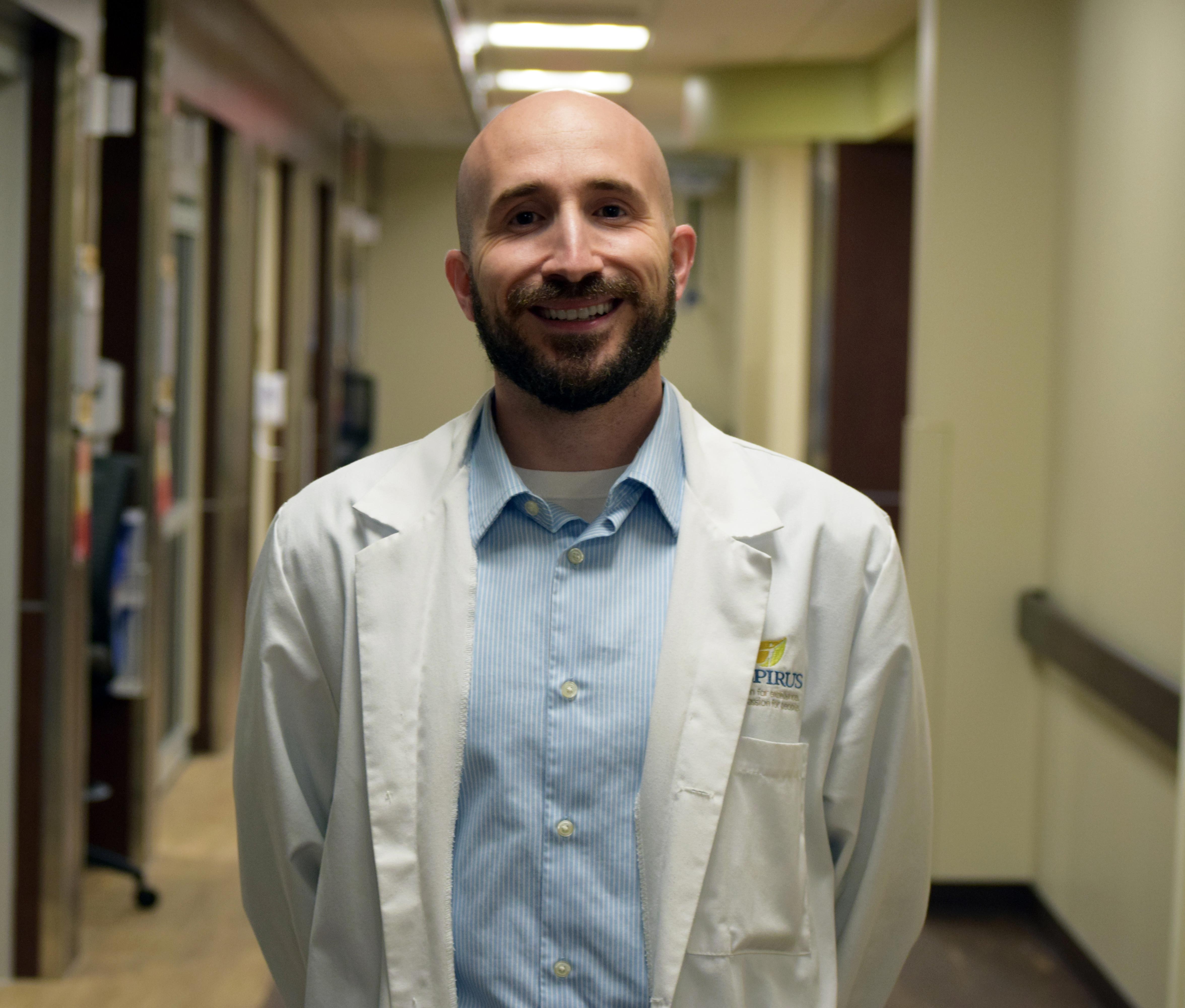Aspire Magazine: When Your Medications Can't Fight Back
WHEN we get
injured or sick,
it’s common to
be prescribed
medication
to help us feel
better. In fact, the
U.S. Centers for
Disease Control
and Prevention estimates that nearly
50 percent of Americans use at least
one prescription drug every 30 days.
While medications can be helpful in
restoring health or quality of life, there
can be negative consequences if they
are taken for extended periods of time
or misused. For example, opioids are
very effective in providing pain relief,
but addiction and overdose are major
concerns associated with taking them.
Another common type of medication
where a troubling trend is developing is
antibiotics—and the reason for concern
is very different.

What is an antibiotic?
Antibiotics are substances that kill
bacteria or stop them from growing.
Infections caused by viruses, like a cold
or the flu, should not be treated with
Antibiotic resistance has become a global problem, and the medical community is taking action. Aspirus has
implemented an antimicrobial stewardship program that aims to ensure antibiotics are:
w Used only when they are needed.
w Used for the shortest duration possible.
w Targeted to the specific cause of the infection.
The program is a collaboration of physicians, pharmacists, nurses and lab technicians.
Tristan O’Driscoll, PharmD
When your medications
can’t fight back
Changing antibiotic use to keep them effective
antibiotics. While we don’t typically
worry about addiction or misuse with
antibiotics, overuse can lead to problems
for people even if they’ve never taken
them.
“Antibiotics are wonder drugs that
have saved countless lives worldwide,”
said Tristan O’Driscoll, PharmD, Aspirus
antimicrobial stewardship program
coordinator. “Antibiotics are very
effective, but we should only use them
when needed.”
Our bodies rely on good bacteria—
both inside and out—to function
properly. If antibiotics are used to treat
infections when it’s not appropriate,
they can cause more harm than good.
Antibiotic resistance
“Antibiotics are the only drugs where
their use in one person can impact the
effectiveness in others,” O’Driscoll said.
“When used unnecessarily, antibiotics
can kill off our good bacteria and cause
bad bacteria to build up a resistance
against medication, even when used
correctly.”
Antibiotic resistance can limit
treatment options and their effectiveness
for some illnesses. O’Driscoll said that
treating the symptoms of an illness can
be an effective way to reduce the use of
antibiotics and the ability of bacteria
to build resistance. This includes using
alternatives like pain relievers, fever
reducers, saline nasal spray or drops and
warm compresses, to name a few.